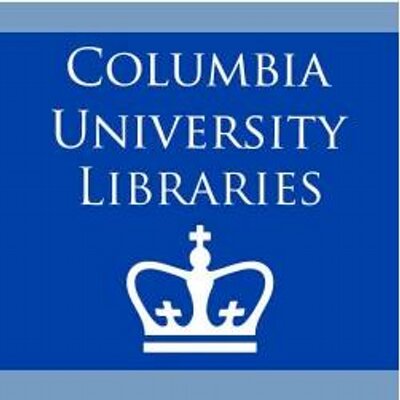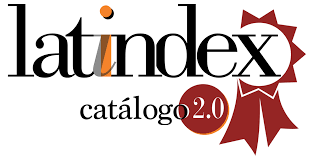Revista de Arquitectura is an open access journal. More information...
Authors retain copyright and grant to the Revista de Arquitectura the right of first publication, which will be simultaneously subject to the Creative Commons (CC) BY-NC license.
Authors will sign a non-exclusive distribution license for the published version of the article by completing (RevArq FP03 Permission to Reproduce).
Self-archiving will comply with SHERPA/RoMEO guidelines and the Green classification.
To see in detail these guidelines, please consult...
Abstract
The architecture project and their processes, inside the discipline tradition has been the way architects have faced the problems that arise with the passing of time where has been a link between theory and practice. From the XV century in the western culture has been used as form of knowledge and forecast, articulate to a very own invention phenomenon, when having to give rigorous and precise material solutions, in a principle as relationship between technique and art, and in our time as a relationship among science, technique, art and philosophy. Up until today, in our means it is considered as an obliged practice to produce work of architecture in a rigorous and precise way, centered in a “to know how to make.” However, the project and the projectacion processes can consider it in opposition to the idealistic postures, like form of producing knowledge to discipline starting from similar procedures, used by the science and the philosophy in narrow relationship with the procedures characteristic of the technique and the art, and in an articulate way between theory and practice, in consonance with the complexity of the problems and the thought of the contemporary culture.

References
Argan, G. C. (1979). El concepto del espacio arquitectónico. Desde el Barroco hasta nuestros días. Buenos Aires: Nueva Visión.
Aris, C. M. (1993). Las variaciones de la identidad. Barcelona: Serbal.
Broadbent, G. (1976). Diseño arquitectónico, arquitectura y ciencias humanas. Barcelona: Gustavo Gili.
Burbano Pérez, E. (1983). Pautas para la investigación en la arquitectura y el urbanismo. Bogotá: Escala. Colección cuadernos de arquitectura Escala; N°. 6, 7
Christopher, A. (1969). Ensayo sobre la síntesis de la forma. Buenos Aires: Infinito.
Christopher, A. (1980). A pattern language, Un lenguaje de patrones. Barcelona: Gustavo Gili.
Corona, A. (1991). Ensayo sobre el proyecto. Buenos Aires: Librería Técnica.
Correal, G. D. (2001) Proyecto y representación. Algunas reflexiones provisionales. Revista Ciencias Humanas. No. 7, 30-39. Cali: USB, enero-junio 2001.
Correal, G. D. (2004). Sobre la naturaleza de la investigación proyectual. Revista Científica Guillermo de Ockham. Vol 7, No 1. Cali: USB
De Lapuerta, J. M. (1997) El Croquis, Proyecto y Arquitectura. Madrid: Celeste.
Gregotti, V. (1972). El territorio de la Arquitectura. Barcelona: Gustavo Gili.
Jiménez, S. (2006) El proyecto arquitectónico. Aprender investigando. Cali: Universidad de San Buenaventura, Facultad de arquitectura, arte y diseño.
John Christopher, J. (1972). Design methods: seeds of human futures. London: Wiley-Interscience.
León Battista, A. (1991). De Re Aedificatoria. Madrid: Akal (Trabajo original Publicado 1624)
Martín Hernández, M. J. (1997) La Invención de la Arquitectura. Madrid: Celeste.
Monesteroli, A. (1993). La arquitectura de la realidad. Barcelona: Serbal.
Müller, W., Vogel, G. (1995). Atlas de arquitectura. 1 Generalidades. De Mesopotamia a Bizancio. Madrid: Alianza.
Quatremere de Quincy, A. (1832). Dictionnaire d?architecture.
Rossi, A. (1982). La arquitectura de la ciudad. Barcelona: G. Gili.
Saldarriaga Roa, A. & Fonseca Martínez, L. (1983). Lenguaje y métodos en la arquitectura. Bogota: Proa. Cuadernos Proa N° 1
Saldarriaga Roa, A. (1996). Aprender arquitectura: un manual de supervivencia. Santafé de Bogotá: Corona.
Sarquis, J. (2002). Itinerarios del proyecto: Ficción epistemológica. Tomo I. Buenos Aires: Nobuko.
Solá-Morales Rubió, I. (2003) Diferencias: topografía de la arquitectura contemporánea. Barcelona:Gustavo Gili.
Vasari, G. (2004). Las Vidas. Madrid: Ediciones Anaya.
Wick, R. (1986). Pedagogía de la Bauhaus. Madrid: Alianza.

























